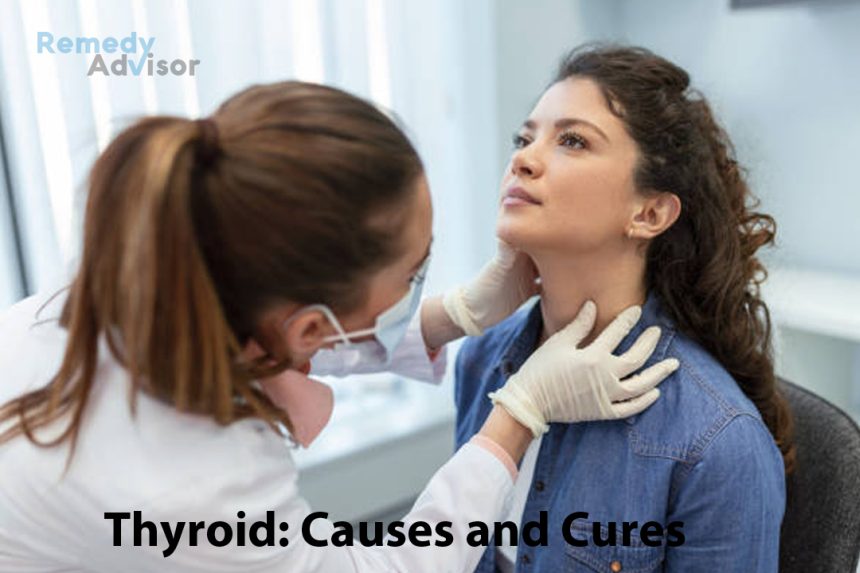If you’ve been feeling run-down, the problem could be your thyroid gland. Research suggests that hypothyroidism (thyroid deficiency) is far more common than previously believed. One study found signs of the disorder in 8% of women and 3% of men.
Hypothyroidism is especially common among older people. Over age 60, up to 17% of women and 8% of men have it.
The thyroid gland, located just below the Adam’s apple, is responsible for regulating body metabolism. Besides reducing your energy level, hypothyroidism can cause elevated cholesterol levels, weight gain, depression, constipation and/or brittle hair and nails.
Causes of thyroid trouble
The leading cause of hypothyroidism is scarring of the gland caused by inflammation. This condition is known as Hashimoto’s disease.
Other causes include viral infection, certain drugs (including lithium and iodine) and radiation therapy delivered to the neck for cancer.
Mild cases of hypothyroidism often go undetected because the symptoms are too subtle to be detected by the individual.
Doctors at Massachusetts General Hospital in Boston studied a group of patients with mild hypothyroidism. Most of these patients thought they were well. In a double-blind study, each was treated, in turn, with thyroid and placebo tablets.
Result: Most patients felt better when taking the thyroid tablets. Some felt more energy; others were less depressed or less constipated.
These findings suggest that low-dose thyroid treatment may be beneficial even for people who don’t know they have thyroid trouble.
Checking thyroid levels
The easiest way to detect hypothyroidism is via a blood test for a pituitary hormone called thyroid-stimulating hormone (TSH). Ordinarily, TSH stimulates the thyroid gland to make triiodothyronine (T3), thyroxine (T4) and other thyroid hormones.
If levels of these thyroid hormones fall too low, the pituitary automatically makes more TSH. So, abnormally high levels of TSH are a clear sign of hypothyroidism. If your thyroid is producing too much hormone (a condition called hyperthyroidism), TSH levels in your blood will be abnormally low.
If your TSH levels are abnormal, your doctor may order other tests. The TSH test can be obtained by your primary-care physician during a routine checkup. Cost: $40 to $80.
Who should get tested?
Everyone age 50 or older should have his/ her TSH levels checked at least once every five years. Start at age 35 if you have…
- A parent, sibling or child who has had thyroid trouble.
- A visibly swollen thyroid gland (goiter). If you think you have a goiter, see a doctor. The condition can be the first sign of thyroid cancer.
- Prematurely gray hair. Even a single gray hair before age 30 is a sign that you may have an overactive or underactive thyroid.
- Insulin-dependent (type 1) diabetes.
- A tendency toward left-handedness. For unknown reasons, left-handed people seem to be predisposed to thyroid trouble.
- Pernicious anemia.
- Spots on the skin lacking pigmentation known as vitiligo, a thyroid-related immune disorder.
Important: A diagnosis of hypothyroidism should always be confirmed by a TSH test
Treating hypothyroidism
Hypothyroidism is easily corrected by taking a daily tablet of T4 (from which the body can make T3). This treatment, taken indefinitely, can be prescribed by your regular doctor.
Most people with hypothyroidism feel well after two to three months of taking the pills.
Your doctor will probably start you on a low dose of thyroid hormone and check your TSH levels every few weeks until the proper dosage is found. Dosing requirements can change, so have your TSH levels checked about once a year.
Caution: Thyroid pills should not be taken with iron supplements. Iron blocks the absorption of thyroid hormone.
Overactive thyroid
Low levels of TSH generally mean hyperthyroidism. This condition can occasionally be caused by inflammation of the gland or too much iodine in the diet. But the most common cause is a hereditary condition known as Graves’ disease.
Graves’ usually strikes between age 20 and 40. Signs include swelling of the thyroid, weight loss, anxiety, hair loss, muscle weakness and a rapid heartbeat.
If you’re diagnosed with Graves’, your doc¬ tor will probably refer you to an endocrinologist for additional testing and treatment.
Thyroid lumps and tumors
About one of every 25 people has one or more small nodules in their thyroid gland.
If a nodule is detected, your doctor should evaluate it further. Tests may include a TSH level, imaging studies (an ultrasound or a radioactive thyroid scan) and a thyroid biopsy.
Nodules that prove to be cancerous should be surgically removed. Surgery is often combined with radioactive iodine, thyroid supplements and X rays or chemotherapy. Most cases of thyroid cancer can be cured via these means.







